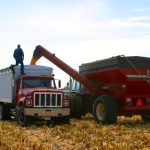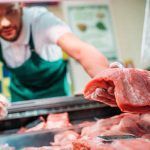
Tag Archives Environment

Natural resources more than just ‘stuff’ in our ecosystem
Exploring Indigenous agricultural views of relationship and reciprocity with the land

Agriculture needs better frame for carbon value
Farmers and industry need to join forces to guide the conversation on carbon and climate change, panel says

Report flags lack of national guidelines for ag carbon offsets
Canada falling behind in agriculture carbon market, report says

Comment: It’s hard to be green while in the red
Farmers must make money before they can invest in sustainability and the carbon price isn’t helping

Public wants ‘green’ farming, but wallets remain closed
Consumers care about the climate, but not enough to pay extra in the grocery store

Comment: Agroforestry can be a financial win or a trendy flop
Farmers must be set up for success if agroforestry is to live up to its promises

The science of burp-busting GHGs in cattle
Bovaer is safe and effective but other GHG-limiting solutions should be appraised, says researcher

American climate in Manitoba’s future
Longer growing seasons are likely, but they’re probably bringing more droughts with them

GHG reductions highlight Canadian beef sustainability report
Assessment reveals industry has reduced emissions by 15 per cent

Top weather stories of 2023
Mother Nature wasn’t kind to Canada weather-wise over the past 12 months


